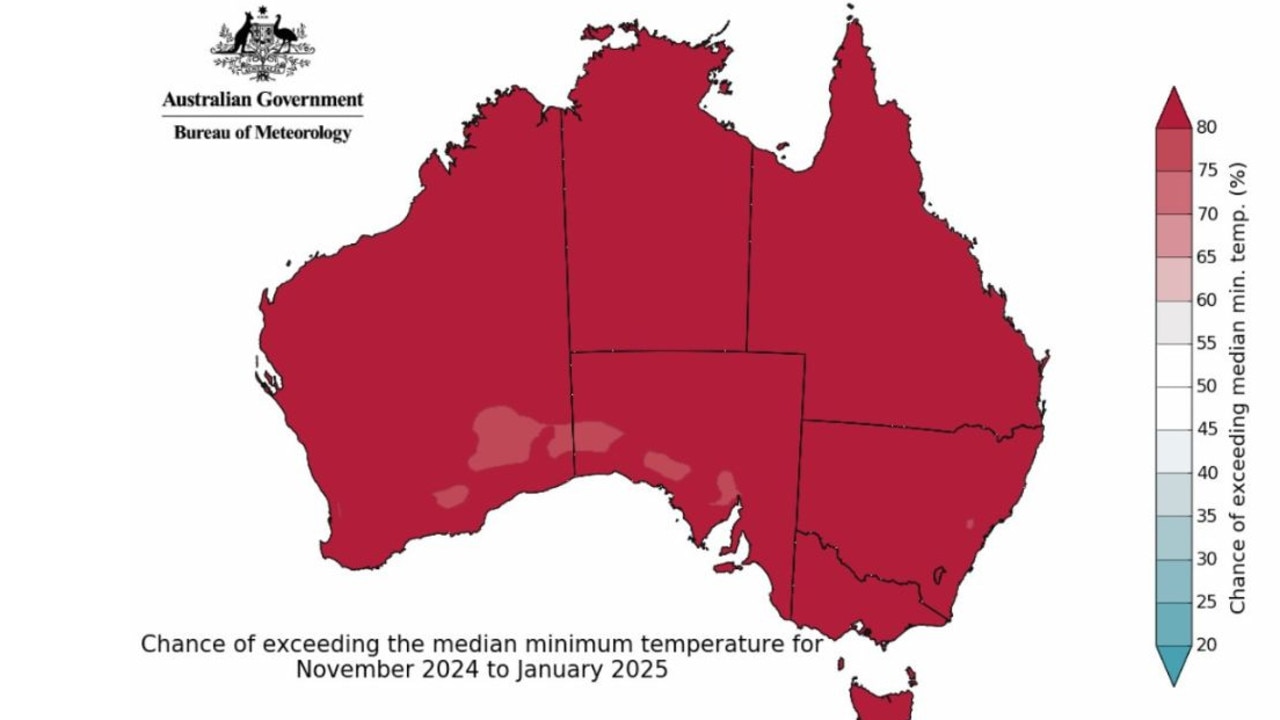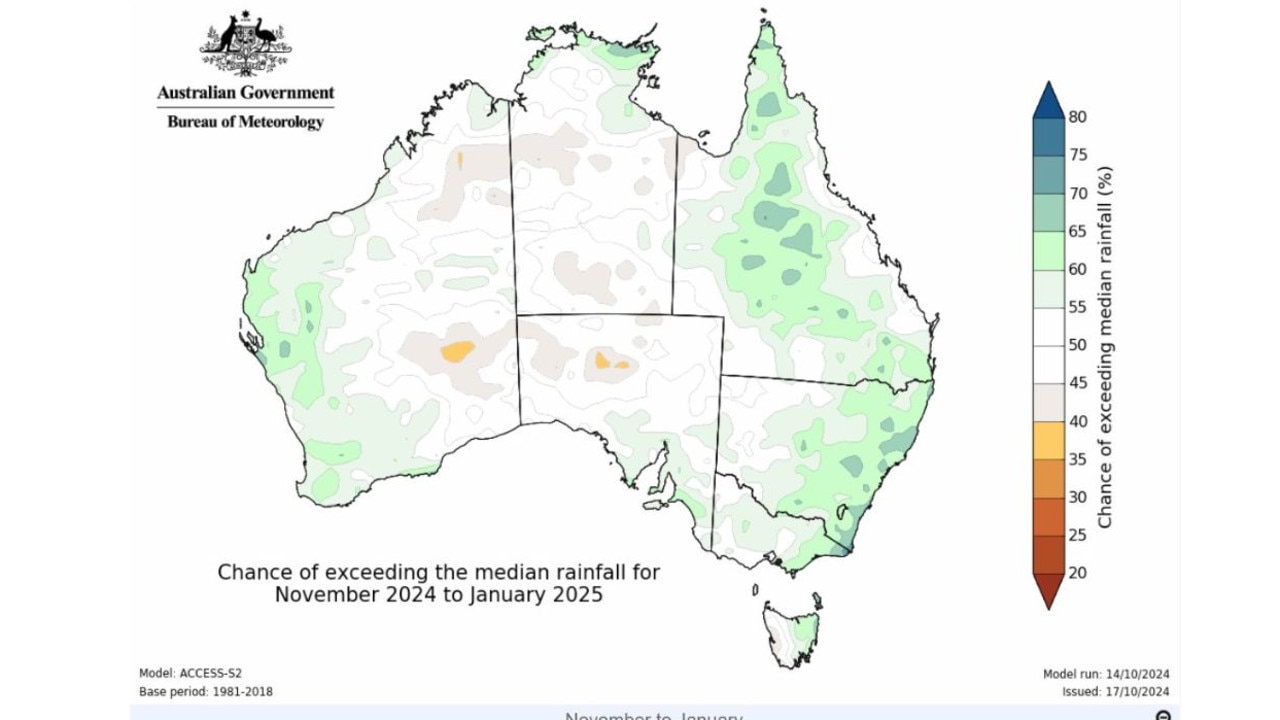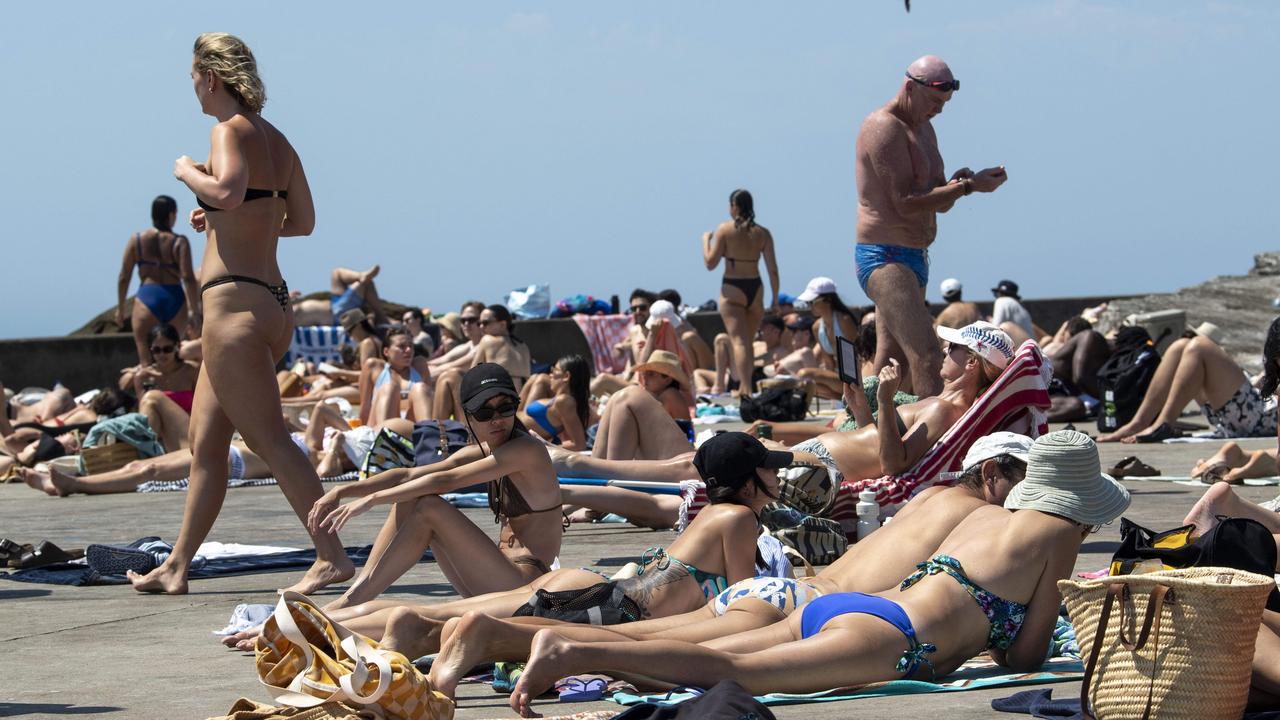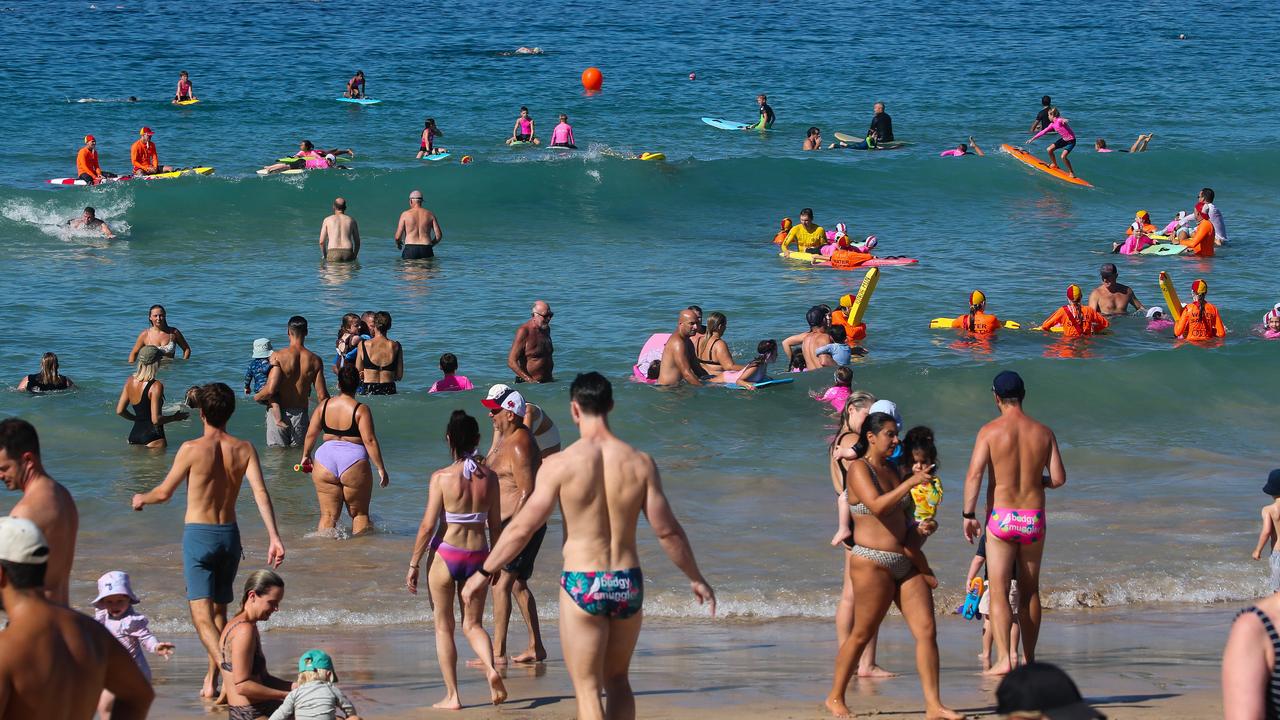Aussies and tourists changing travel plans ahead of a hot, wet summer
Australia is in for a hot and wet summer, and it is expected to have a major impact on the way people travel.
Australia is in for an unusually hot and wet summer, and it is expected to have a major impact on the way tourists want to travel and experience the country.
While extreme heat and overtourism is known to be influencing the way Aussies travel to Europe for the northern summer, industry experts want you to know it is happening in our own backyard, too.
“The extreme weather that we’re seeing is a persistent threat to the tourism and experiences industry,” Big Red Group chief executive David Anderson told news.com.au.
Brett Mitchell, Australian managing director at Intrepid Travel, agreed: “We’ve highlighted climate change as one of our most pressing risks as a business … We’re seeing it all over the world and also here in Australia.”
From November to January there is an increased chance of unusually warm days and nights across Australia, and above average rainfall is likely across parts of eastern, western and far northern Australia, according to the Bureau of Meteorology’s long-range forecast.
Sky News Weather meteorologist Rob Sharpe told news.com.au that this summer, nights are very likely to be within the top four warmest on record for Australia as a whole.

Mr Sharpe said the Bureau’s current forecast for mean temperatures (days and nights) was close to 1.5C above the 1961-1990 baseline, “which would make it the fourth warmest summer on record”.
“However, some of the other global models are suggesting it won’t be quite as hot as that,” he added.
“Our forecast is that Australia as a whole should see a summer in the top ten hottest on record – primarily aided by the warm seas and the influence of climate change.”
The Bureau has urged communities to prepare for the country’s upcoming severe weather season; when it is the peak time for tropical cyclones, severe thunderstorms, flooding, heatwaves and bushfires.
Andrea Peace, BOM national community information manager, said a higher proportion of tropical cyclones this year are likely to be more severe.
The expected La Nina climate driver, which increases the chance of wetter than average conditions for the east due to warmer waters off the coast, is still yet to materialise.

The way travellers experience Australia is changing
Big Red Group and Intrepid Travel have both observed customers booking experiences and tours closer to the date because they want to watch the weather.
Big Red Group, which includes tourism experience booking sites RedBalloon, Adrenaline and Experience Oz, has noticed a trend of more people booking on the day of their experience.
Unfortunately for some activities, the days they can operate are becoming fewer.
“Hot air ballooning and skydiving, products like that that require suitable conditions to operate, are seeing far fewer days that they can actually operate on,” Mr Anderson said.
“These increasing turbulent conditions are having an impact on both the consumer booking windows and how they think about booking, and also just in terms of availability of product.”
As is common during hot weather, water experiences are more popular. This year, white water rafting bookings in particular are up 194 per cent for spring year-on-year.
“Some say that’s the Jess Fox effect from the Olympics,” Mr Anderson added.

Eco and agricultural attractions are also having a moment, with bookings up 370 per cent for spring year-on-year.
“We’re seeing almost quadruple the amount of experiences in that space and that reflects I think increasing interest in sustainable experiences and more so culture experiences,” Mr Anderson said.
Travellers and tourism operators must become more flexible
Mr Anderson said while tour operators could not control the weather, they had to find ways to adapt and manage the things they can control, like scheduling experiences earlier in the day to avoid the worst of the heat.
He said the reality is, “there is a changing climate issue and that is changing behaviours for consumers”.
Mr Mitchell said being flexible and adaptable to severe weather was critical to the success of Intrepid Travel, which is a global tour operator based in Melbourne.
“Our product design changes significantly year-on-year and a lot of that is based on heat or constant flooding conditions,” he said, adding that in some cases, destinations have been removed from the schedule altogether.

In northern Australia, such as the Kimberley region, the tourism seasons Intrepid Travel operates are getting shorter “just because of the volatility of weather”.
“Those windows of being able to operate without severe weather are getting more narrower and that’s something we’re certainly seeing in particular areas,” Mr Mitchell said.
Walking tours also used to be more popular in Far North Queensland and the Kimberley region but Intrepid Travel has reduced that offering due to the weather.
“On the flip side we’ve seen the walking product and different activities [like cycling] grow in the southern states where the warmer climate now is making some of these areas in off-season actually the best time to go,” he said.
Being flexible with travel plans is not just for operators but essential for all travellers now too.
Intrepid Travel uses local guides for its small group tours and they are given the responsibility of altering their daily itinerary based on weather.
“A good example is when they’re on trip and there is a 40C day scheduled for tomorrow, [they must] be agile enough to be able to change the itinerary,” Mr Mitchell said.
This may include getting up earlier to do an outdoor activity in the morning before the heat of the day and delaying parts of the itinerary until the following day.
“Our guides, we talk to them about the importance of communication,” he said.
“If you can communicate changes to itinerary and they are logical and make sense and they’ll lead to a better experience, then customers absolutely love it and don’t get upset about it at all.”

Tour operators struggling to keep afloat
Mr Anderson said many Australian tour operators had “a lot of scar tissue from the last few years” with devastating bushfires, the pandemic and storms.
Tour operators who were significantly affected by storms in the Gold Coast and Far North Queensland during peak season last year are now bracing for another difficult year.
By the final week of 2023, Big Red Group said experience bookings for the Gold Coast fell by 57 per cent compared to the previous year.
Far North Queensland saw a 36 per cent decrease in year-on-year experience bookings in the last two weeks of the year, while Port Douglas was hit especially hard with a 64 per cent drop.
Mr Anderson said some operators near Port Douglas were “absolutely obliterated” and were just coming back online now.
“We’re only just starting to do some of the jet boating tours and [other] tours out of Port Douglas a year later,” he said.
Mr Anderson said many small tour operators across the country were operating in a “very challenging environment”.
He referred to a report from Zurich Financial Services Australia and Mandala Partners released last month that found half of Australia’s tourism assets are currently facing considerable climate and natural peril risk.
“Clearly that’s reflecting the risk people are seeing in industry and from my own experience, many of our small businesses are facing existential pressure from the increase in insurance premiums,” Mr Anderson said.
“Some of them are seeing triple insurance premium increases year on year, which for small businesses if you were paying $30,000 last year for your insurance, now you’re being asked to pay over $100,000 – that’s your entire profit.
“It’s not just the impact to availability of experiences for consumers but also the downstream impacts and just the fundamental business model and operations of our operators.”






